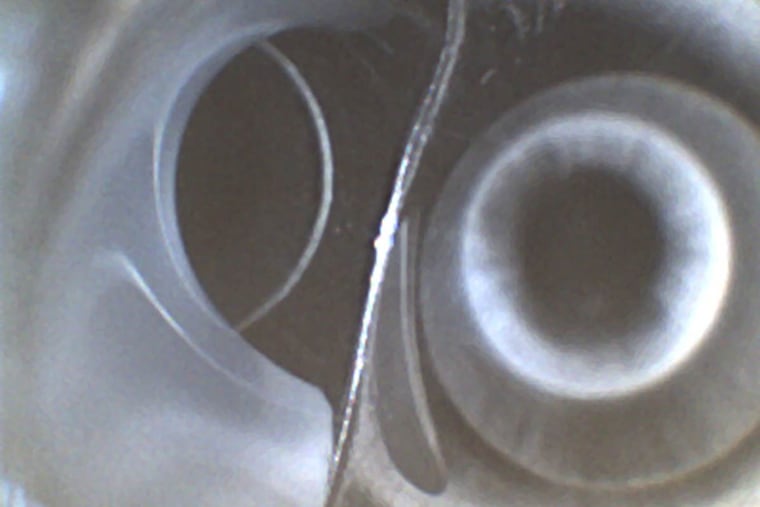Study: Drug added to medical scopes may pose danger
A surprising ingredient - infant gas-relief drops - may be contributing to the contamination of medical scopes nationwide and putting more patients at risk of infection, according to a small but provocative study.

A surprising ingredient - infant gas-relief drops - may be contributing to the contamination of medical scopes nationwide and putting more patients at risk of infection, according to a small but provocative study.
Researchers in Minnesota unexpectedly found cloudy, white fluid inside several colonoscopes and gastroscopes after they had been disinfected and deemed ready for use on the next patient.
Further analysis revealed the fluid contained simethicone, the main ingredient in over-the-counter anti-gas medications available at grocery stores and pharmacies. Doctors nationwide regularly inject the liquid drops into gastrointestinal scopes during colonoscopies and other procedures to reduce bubbles inside the body that can impede visibility.
But that routine practice may be helping bacteria grow inside a wide variety of scopes and making the microbes hard to remove. (Click here to read about eight infection cases at Jefferson University Hospital) The authors of the study, published in the American Journal of Infection Control, recommend that hospitals and doctors minimize the use of these products pending further research into their effect on patient safety.
No infections have been specifically linked to the drops thus far. The study only suggests that they could heighten the risk of contamination. "Finding residual fluid in scopes that should be dry would be troubling alone," said Cori Ofstead, the study's lead author. "The finding of fluid containing simethicone suggests we have more serious problems. It could explain why we are having more trouble getting these scopes clean."
Infant gas-relief drops contain sugars and thickeners to make the liquid solutions more palatable for babies. Ofstead said those ingredients "could provide the perfect habitat for the growth of bacteria" inside scopes.
The liquid drops also contain silicone, which doesn't dissolve in water and can't be removed using detergents or disinfectants. It can also foster the growth of biofilm, a slimy material that protects bacteria and other microbes from being removed during cleaning.
Ofstead, an epidemiologist and chief executive of the medical research firm Ofstead & Associates in St. Paul, Minn., said that these findings were "absolutely surprising" and that researchers stumbled upon them during a broader look at scope- cleaning techniques. The seven-month study was conducted with physicians and a surgery center affiliated with the University of Minnesota Health system.
Michael Shaw, a gastroenterologist and study coauthor, said that halting the use of simethicone products would hinder doctors' ability to accurately treat patients with endoscopy.
Regulators and medical experts have said the duodenoscope's complex design at its tip can make it difficult to clean even when following the manufacturer's instructions.
This new study focused on more widely used colonoscopes and gastroscopes, which have simpler designs and tend to be easier to disinfect.
Scope manufacturers Pentax Medical and Fujifilm have told health-care providers that injecting these drops into endoscopes is not recommended because residue can impede cleaning.
The leading maker of gastrointestinal scopes, Olympus Corp., whose American headquarters are in Center Valley, Pa., told customers in a 2009 letter that because simethicone may be hard to remove from endoscopy equipment, health-care providers should use the "lowest concentration possible to achieve the desired effect." (See more on Olympus here )
Olympus and Fujifilm didn't respond to requests for comment on the study. Pentax Medical emailed that "maintaining patient safety and quality is our utmost priority."
Kaiser Health News is a national health policy news service that is part of the nonpartisan Henry J. Kaiser Family Foundation.